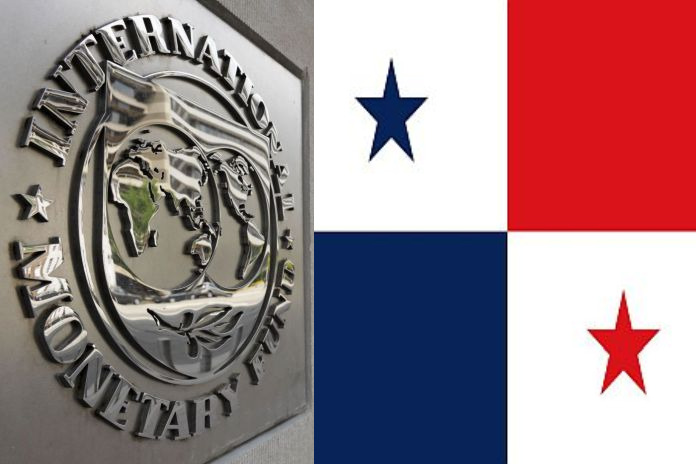WASHINGTON, USA – On June 14, the executive board of the International Monetary Fund (IMF) concluded the Article IV consultation with Panama.
Panama’s economy contracted sharply in 2020 against the backdrop of reduced mobility and measures to address the COVID-19 pandemic, along with the global recession.
Real GDP growth contracted by an unprecedented 17.9 percent in 2020, and the unemployment rate rose sharply to 18½ percent in September 2020. A sharp loss of revenues due to the lockdown and associated demand effects also precipitated a marked deterioration in the fiscal position, while COVID-related spending in health and social programs was broadly offset by a reorientation of other expenditure. The nonfinancial public sector fiscal deficit swelled to about 10 percent of GDP, but remained in line with the amended fiscal rule. The external current account improved to a surplus of 2⅓ percent of GDP in 2020, on the back of a sharp contraction in imports, lower oil prices, as well as increased copper exports and resilient canal revenues.
The financial sector remained stable, well capitalized, and liquid despite the large pandemic shock and moratorium on servicing bank loans. Panama remains on the Financial Action Task Force (FATF) grey list. While the FATF acknowledged the actions taken by the authorities in improving the AML/CFT regime in the recent February 2021 Plenary, progress was not sufficient to remove Panama from the list of countries with strategic deficiencies. The FATF noted that the timelines for implementing all items of the FATF action plan had expired and encouraged Panama to address remaining deficiencies as soon as possible.
While a strong recovery is expected for 2021, the balance of risks remains tilted to the downside. Growth is projected to recover to 12 percent in 2021 and converge to its potential of about 5 percent over the medium-term. However, the economic outlook continues to be subject to an unusual degree of uncertainty arising from the impact of the pandemic. Domestic downside risks include delays in addressing the items contained in the FATF’s Action plan and improving the effectiveness of the AML/CFT regime and tax transparency frameworks; increase in NPLs from the moratorium on servicing bank loans; setbacks in fiscal consolidation which jeopardizes market confidence.
External risks include new pandemic waves, and continued weaknesses in global trade curtailing traffic flow and revenue from the Canal. In addition, natural disasters and extreme climatic events could lead to loss of lives and livelihoods, and disrupt canal activity, agriculture, and tourism.
Executive board assessment
Executive directors broadly agreed with the thrust of the staff appraisal. Panama experienced a pronounced economic contraction in 2020 amid stringent containment measures and mobility restrictions to tackle the COVID-19 pandemic. A rebound in the global economy and supportive macroeconomic policies are expected to underpin a strong recovery in 2021. Directors commended the authorities’ commitment to protecting the health and lives of Panamanians through a vaccination program. They emphasized the need to remain cautious as global uncertainties remain, particularly from the emergence of new COVID-19 strains.
Directors underscored the importance of adhering to the fiscal rule to ensure debt sustainability in the medium term. The envisaged post-pandemic fiscal consolidation effort should be accompanied by strengthening medium-term planning. Directors highlighted the need to strengthen the fiscal framework to improve the credibility of the fiscal strategy and refine the public financial management framework to bolster transparency and prevent the resurfacing of arrears.
Panama’s banking system remained resilient during the pandemic, and is generally well-regulated. However, the financial system is still vulnerable to unanticipated shocks. Tight supervision and monitoring are needed to safeguard stability. Directors stressed the need for the regulatory forbearance granted on loans following the pandemic to be restricted and phased out, reinforced by a supervisory action plan and close monitoring. The ad hoc provisioning requirement on modified loans should continually be recalibrated to evolving circumstances. Given the large share of modified loans, a risk-focused loan portfolio examination of all banks, including an assessment of fundamental asset quality, would help assess banks’ credit exposures and capital buffers.
Directors emphasized the importance of improving the financial integrity framework. Exiting the FATF grey list must remain a priority, including by expediently addressing the remaining deficiencies in the AML/CFT regulatory framework. Efforts to further enhance tax transparency should continue, in close cooperation with the European Union.
Directors called for structural reforms to enhance competitiveness and growth potential through improvements in the business climate, strengthening policies related to labor mobility, governance and institutional capacity, enhancing innovation and technological sophistication in key industries, and deepening financial inclusion. There is also a need to upgrade workforce skill levels, streamline the insolvency framework and improve the functioning of the judicial system to remain an attractive destination for doing business. Directors welcomed the long-term goals of enhancing the efficiency of spending, particularly in health, education, and social areas, including improving the living conditions of indigenous populations.






